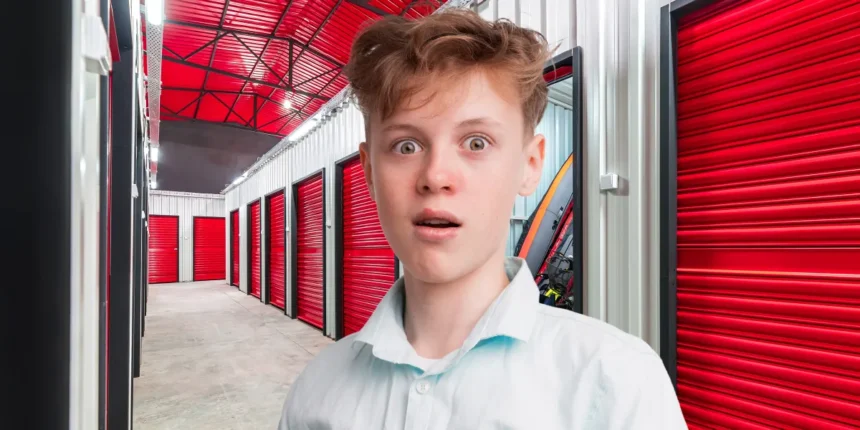When Claire, my new neighbor, moved in six months ago, I initially thought she was just another friendly woman who kept to herself. In her 40s and living with her 16-year-old son Adam, she seemed perfectly normal. I even lent her a ladder, a garden hose, and let her use our outdoor grill when we weren’t home, thinking that’s what good neighbors do.
Then one weekend, my husband David and I took the kids to visit my parents for a much-needed break. We planned a date night while my parents watched the little ones. When we returned after two days, our backyard looked like a war zone. Empty beer bottles littered the patio, potted plants were overturned, toys were scattered everywhere, and grease stains marred our once-pristine deck. Our grill station looked like it had survived a disaster.
Stunned and frustrated, I marched over to Claire’s door. When she answered in her pajamas, unfazed, she laughed it off. “Oh, that was just Adam’s birthday party—kids will be kids,” she said dismissively. I couldn’t believe it. My backyard wasn’t a public park. I told her firmly, “My yard isn’t for public use, Claire. You could have at least cleaned up.”
She shrugged, replying, “Don’t be so uptight, Camilla. It’s just a small mess. A hose will fix it.” Furious but trying to stay calm, I went home, torn between being reasonable and wanting to plot some form of payback.
Later that day, as David made tea, he jokingly asked, “Found the culprit yet?” I explained, “Apparently, it was Adam’s birthday party.” David laughed, suggesting I could scare the kid, but deep down, I just wanted Claire to understand the importance of basic respect. So, I wrote down three simple rules on a notepad:
If you use something, clean it and return it.
Respect my property.
Clean up after your child.
The next morning, I handed Claire the note, hoping for a mature conversation. Instead, I woke up to find her own set of rules taped to my front door—rules for my property. I nearly choked on my coffee as I read her demands, which ranged from limiting grilling to before 7 PM to notifying her before I used my grill, even dictating how I should mow my lawn. Just then, my eldest daughter Olivia came running with a video on her phone: Adam had been posting TikTok clips from our yard, laughing about turning it into his personal hangout while trashing it for his followers. Furious, I filmed the mess—litter, a grease-stained grill, and her absurd rule list—and posted it online with the caption, “Glad my neighbor and her kid enjoy my backyard more than I do! Check out the rules she gave me!”
Within three days, the video went viral, gaining five million views. Social media exploded with criticism of Claire’s entitlement and invasive behavior. One commenter even offered to help build a chain-link fence, and by the end of the week, my backyard was secured like Fort Knox. If Claire wanted access to my space, she wasn’t getting it.
It didn’t take long for Claire to notice the changes. One afternoon, she stormed over, a wooden spoon in hand, pounding on my door and yelling that I was breaking her rules. I answered sweetly, feigning surprise, “What’s with the spoon? What have you been baking?” Her face twisted in rage as she insisted, “You’re violating my rules, Camilla!” I calmly explained that since we now had different rules, I preferred to keep our spaces separate. She fumed, and I savored my cup of coffee, a small, satisfied smile on my face as my water bill dipped, my driveway stayed clear, and I regained control of my property.
Two days later, there was a knock on the door—not from Claire, but from Adam. The miserable 16-year-old stood there, looking dejected. “Ma’am, please… you’re ruining my life,” he mumbled. He explained that his TikTok videos had exposed him, causing problems at school. I told him directly that he should have cleaned up after himself and that my property wasn’t his playground. He nodded, and I promised to delete the videos, advising him to respect other people’s space.
That night, I stepped outside into the cool air and noticed the motion sensor light casting a harsh glow across my yard—when I spotted her. Claire leaned against her house, a cigarette dangling from her lips, her hair disheveled, and her shoulders slumped. For a moment, I considered ignoring her. But as she exhaled slowly and tilted her head toward me, she muttered, “You win. You won. Congratulations. You should see what people are saying about me…” Her voice wasn’t angry, but rather weary and defeated.
I tossed the trash into the bin, dusted off my hands, and replied calmly, “Not really sure what you mean, Claire. I didn’t realize this was a competition.” She scoffed, then murmured, “You didn’t like how I did things, so you went nuclear. You put my kid on blast. You ruined his life.” I crossed my arms. “Adam ruined his own life. I didn’t force him to trash my yard or post those videos, and I certainly didn’t compel you to treat my backyard like your personal domain.”
For once, she had no retort. After a long pause, she sighed, “Do you know how hard it is to raise a teenage boy alone?” I was taken aback, and she went on, “Adam never had a dad—it’s just been us. I tried to give him a good life, but kids make foolish mistakes.” Meeting her gaze, I replied, “Claire, you handed me rules for my own house. I could have pressed charges or taken legal action, but I’m not a bad person—I just don’t like being trampled on.”
Her nostrils flared, but she stayed silent. I then turned and walked back into my house, leaving her standing in the shadows.
What would you have done?
